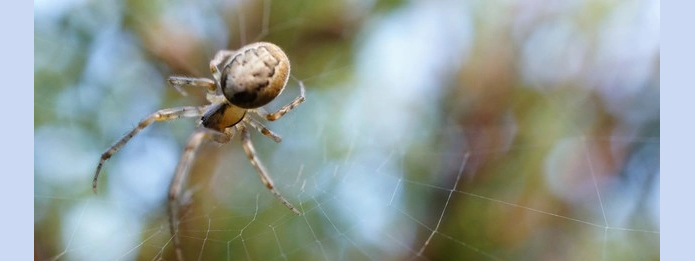 Spiders seem to have webs everywhere during the summer months, taking over the patio and gardens. Walking face-first into a spider web probably ranks low on your list of memorable summer activities. However, once the lower temperatures begin, will you still see as many or will the population decrease? Do the spiders die when winter comes?
Spiders seem to have webs everywhere during the summer months, taking over the patio and gardens. Walking face-first into a spider web probably ranks low on your list of memorable summer activities. However, once the lower temperatures begin, will you still see as many or will the population decrease? Do the spiders die when winter comes?
Spider Species
In some form, all living creatures get ready for the winter months. As humans, we may start looking for a new coat or bring the sweatpants out of storage. For spiders that live outside, it depends on the species. Some spiders only live for one season and die as winter comes in, but for those who survive how do they stay warm during the said season. The North American black and yellow garden spider and the banded garden spider are two of these. The females eat during the spring and summer months, mate and then lay their eggs. After completing the process of protecting their eggs, they die. Another kind of spider produces eggs during the spring. During the winter months, these spiders survive as juveniles. These arachnids include:- Wolf spiders
- Jumping spiders
- Running spiders
The Spider Body
Outdoor spiders do not come inside your home when it gets cold. They are cold-blooded creatures that do not seek warmth. So, the spiders you see in the house, commonly known as house spiders, are not usually the same species as those that live outside. They have likely lived with you all year. Their bodies have become adapted to indoor living conditions. If you were to release a house spider outside during the winter, it would probably not survive. Most of the spiders that live outside regulate their bodies and enter diapause to become less active with the lower temperatures. Diapause is a state of torpor, similar to hibernation. This causes spiders to go dormant. However, they do not completely shut down and may emerge on warmer days to hunt and feed. When spiders sense the change in the weather, they produce a chemical called polyhydroxy alcohol. This is their bodies’ antifreeze. It will build up to protect the spider from the cold and then go away once warmer temperatures set in. Most spiders won’t freeze and can still move around down to 23° F.The Next Generation
Some spiders lay their eggs in the fall. Since the eggs cannot survive freezing temperatures, the parent finds a safe, dark place for protection. You may discover egg sacs:- Under leaves
- In piles of rocks
- On tree bark

